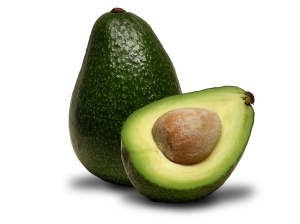What Are Some of The Greatest Nutrient Deficiencies Today?
If you eat a balanced, whole-food diet you’re probably getting adequate amounts of the vitamins and minerals your body needs to function. If not (and this applies to the majority of the U.S. population), there’s a good chance you may be lacking important nutrients. Even if you do eat well, how and where your food was grown can also influence your nutritional intake. Soil quality, storage time, and processing can significantly influence the levels of certain nutrients in your food. Your age and certain health conditions (digestive issues and others) can also impact your body’s ability to absorb the nutrients in your food. Let’s talk about the most common deficiencies and how to address them.
Vitamin D: Vitamin D deficiency is prevalent in people of all ages, especially in those who choose to use topical sun screens (which blocks vitamin D production) or limit their outdoor activities. Researchers estimate that 50 percent of the general population is at risk of vitamin D deficiency, and this percentage rises in higher-risk populations such as the elderly and thos e with darker skin.
e with darker skin.
Signs indicating you may have a vitamin D deficiency include being over the age of 50, having darker skin, obesity, achy bones, feeling blue, head sweating, and poor immune function.
You may optimize your vitamin D levels with sensible sun exposure is the best way, although vitamin D-rich foods. The best foods would be cod liver oil, tuna oil, calamari oil, mushrooms, dairy products, pork, and eggs. Vitamin D3 supplements may also be necessary if you cannot get adequate sun exposure year-round.
Omega 3 Fats: Low concentrations of omega-3 fats, specifically EPA and DHA, are associated with an increased risk of death from all causes, and omega-3 deficiency has been revealed as the sixth biggest killer of Americans. Most Americans eat too many inflammatory omega-6 fats (think processed vegetable oils) and too few anti-inflammatory omega-3s, which sets the stage for a number of health problems, including cardiovascular disease, cancer, depression, Alzheimer’s, rheumatoid arthritis, and diabetes, just to name a few.
Telltale signs that your omega-3 to omega-6 ratio may be out of balance include dry, flaky skin, alligator skin, or “chicken skin” on backs of arms, dandruff or dry hair; soft brittle nails or longitudinal ridges on your nails, fatigue, menstrual cramps, and poor attention span.
Sardines are one of the most concentrated sources of omega-3 fats, with one serving containing more than 50 percent of your recommended daily value. They also contain other nutrients that many are deficient in, such as vitamin B12, calcium, and choline.
If you decide to take omega-3s in supplement form, unprocessed, unheated cod liver oil, tuna oil and calamari oil may be your best sources. The best vegetarian sources are microalgae high in EPA and DHA.
Vitamin K2: Vitamin K2 may be just as important as vitamin D for optimal health. It’s essential for bone strength, the health of arteries and blood vessels, and plays a role in other biological processes as well, including tissue renewal and cell growth, healthy pregnancy, and cancer prevention. Vitamin K2 is an important adjunct to vitamin D, without which vitamin D cannot work properly. K2’s biological action is also impaired by a lack of vitamin D, so you really need to consider these two nutrients together. Vitamins D and K2 also work synergistically with magnesium and calcium, so this quartet should ideally be taken in combination. Whereas vitamin K1, which is the primary form of vitamin K responsible for blood clotting, can be found in green leafy vegetables, vitamin K2 is only present in fermented foods. (a small amount of K1 can be converted to K2 in your body) It’s produced by certain bacteria during the fermentation process.
Examples of foods that are naturally high in vitamin K2 include natto (a fermented soy product) and fermented vegetables like sauerkraut. Raw dairy products such as certain cheeses, raw butter, and kefir also contain high amounts. However, only grass-fed animals (not grain fed) will develop naturally high K2 levels.
Magnesium: Magnesium is the fourth most abundant mineral in your body, yet an estimated 80% of Americans are deficient in it. Without sufficient amounts of magnesium your body simply cannot function at its best. Researchers have detected more than 3,750 magnesium-binding sites on human proteins, reflecting how important this mineral is to a great many biological processes. For example, magnesium plays a role in your body’s detoxification processes and therefore is important for minimizing damage from environmental chemicals, heavy metals, and other toxins. Even glutathione, considered by many to be your body’s most powerful antio xidant, requires magnesium in order to be produced. Magnesium also plays roles in preventing migraine headaches, cardiovascular disease (including high blood pressure, heart attacks, and strokes), sudden cardiac death, and even reduces death from all causes. Low magnesium levels are also consistently found in those with elevated insulin, and research suggests that magnesium intake may help reduce your risk of developing diabetes. Good sources of magnesium include dark-green leafy vegetables like spinach and Swiss chard. Other sources include beans, nuts, and seeds, like pumpkin, sunflower, and sesame seeds. Avocados also contain magnesium.
xidant, requires magnesium in order to be produced. Magnesium also plays roles in preventing migraine headaches, cardiovascular disease (including high blood pressure, heart attacks, and strokes), sudden cardiac death, and even reduces death from all causes. Low magnesium levels are also consistently found in those with elevated insulin, and research suggests that magnesium intake may help reduce your risk of developing diabetes. Good sources of magnesium include dark-green leafy vegetables like spinach and Swiss chard. Other sources include beans, nuts, and seeds, like pumpkin, sunflower, and sesame seeds. Avocados also contain magnesium.
